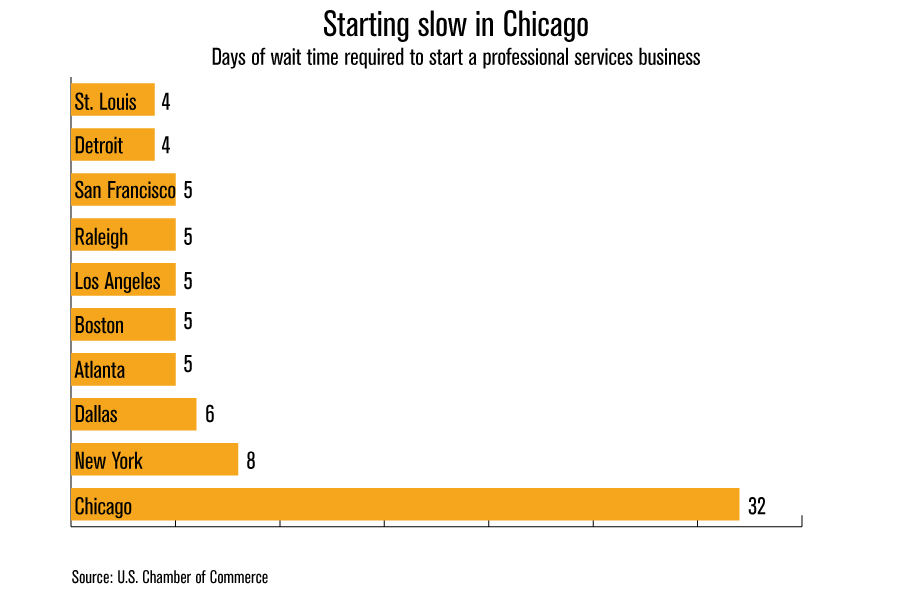Make Chicago a 24-hour city
Chicago needs entrepreneurs. But too often, the city slows them down or chases them out of town. The “City that Works” doesn’t work for startups. A simple process is necessary so that startups in Chicago can get off the ground and start working, hiring and paying taxes. One good place to start is to make...
Chicago needs entrepreneurs. But too often, the city slows them down or chases them out of town.
The “City that Works” doesn’t work for startups. A simple process is necessary so that startups in Chicago can get off the ground and start working, hiring and paying taxes. One good place to start is to make Chicago a 24-hour city.
This idea arrived in America after Phoenix city councilmen observed the startup licensing process in Hong Kong. A Hong Kong entrepreneur can walk into a government office in the morning and walk out with a business permit in the same day.
So the Phoenix City Council set the goal of getting businesses through permitting in one day. Phoenix privatized the process to speed it up, allowed businesses to “self-certify” and is now allowing online permitting so that businesses can get licensed in less than 24 hours.
Chicago, more than anywhere else in the country, needs this type of regulatory innovation. A report from the U.S. Chamber of Commerce finds that Chicago is a dystopian nightmare for starting a professional services business, an industry that accounts for 780,000 jobs in the Chicagoland area. Wait times in Chicago are more than a month, four times longer than the second-worst major metropolis, New York City.
It’s not just professional services that have a tough time starting up. In fact, that’s just the beginning of entrepreneurs’ woes in Chicago. Low-cost jobs, such as home-based occupations, Uber drivers, pedi-cab operators, food entrepreneur incubators, mobile food vendors and even horse-drawn carriages are repeatedly slowed down and under constant attack.
It’s no wonder that Chicago ranks third-to-last among major cities on the Kauffman Index of Entrepreneurial Activity.
But thankfully, entrepreneurs aren’t shy to say what they need. Sara Travis, the entrepreneur who founded The Brew Hub in Chicago but was then forced to move her business to Austin, Texas, put it best. She said, “We could always come home to Chicago, and that’s something that we definitely want to pursue, but Texas is ready for us.”
Chicago needs to clear the path and make itself ready for entrepreneurs. Becoming a 24-hour city would be a great start. There is no better way to encourage entrepreneurs than to tell them that if they have an idea in the morning, they can have a business in the afternoon.

